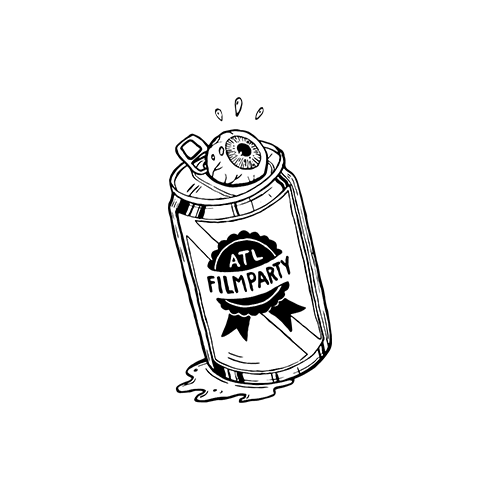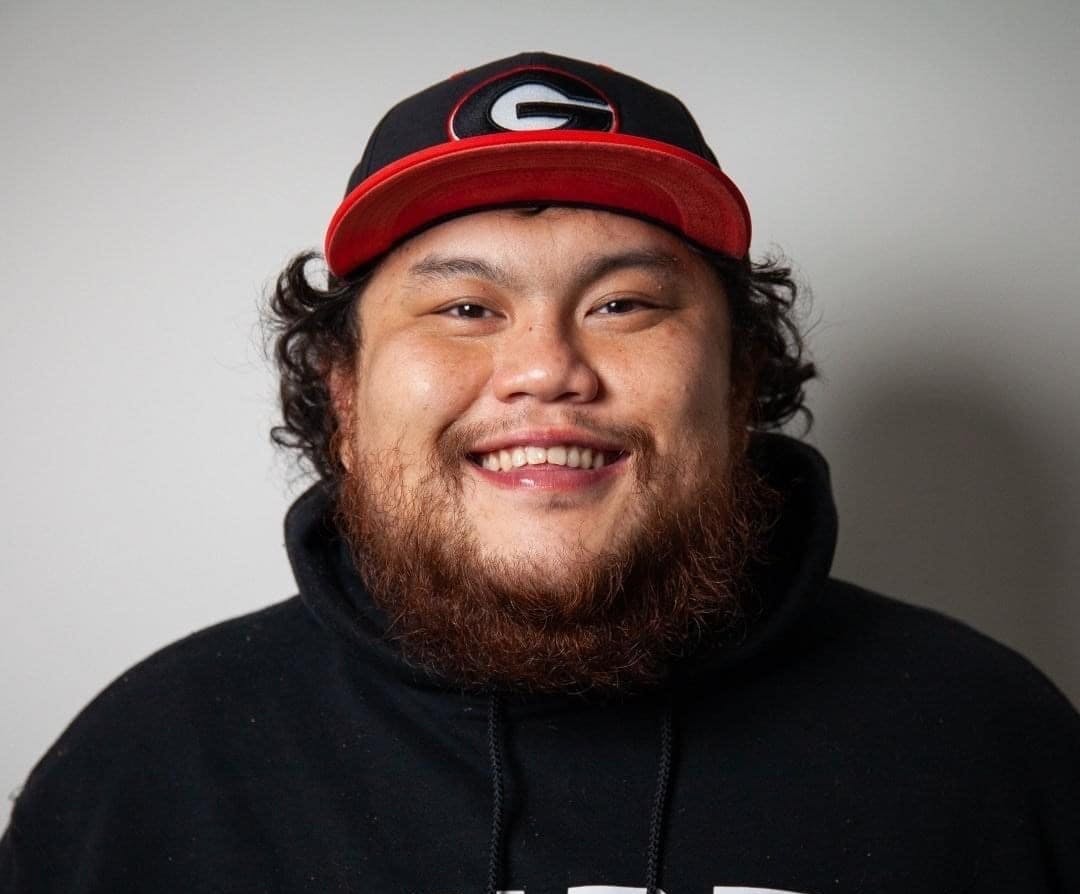It is not a story you have heard before, but there is still something warmly familiar. The underdog character, Jeremy Zong Thao, is fighting tooth and nail against a career change and all the odds are against him. He is a freelance Assistant Director, fresh out of film school, in Georgia. When he’s not ADing, he is looking for the next gig on set. Unsurprisingly to most, the industry is grueling. It consists of long days and nights and is, for the most part, a thankless occupation.
Thao’s Hmong immigrant parents, who have tried their best to create a life worth living in America, are starting to suggest that he should go back to school for a second Bachelor’s degree, focusing on something else entirely. He starts believing in the doubtful narrative that says: You’re going to be an angry 45-year-old AD who ends up quitting with complete and utter discontent.
In 2019, Thao was barely making ends meet. He was wearing himself out both physically and mentally to be a somewhat expendable part of someone else’s vision.
“As a non-creative, working a freelance lifestyle, it can be [punishing]. Physically, financially, you sacrifice a lot,” Thao expressed over a video call with AFPZine. “And just like that, four years had gone by and I hadn't written a thing and I really had no intentions of creatively making anything to be honest with you.”
Fast forward to March 2021, and the world falls into the unknown: a global pandemic.
“Earlier in the pandemic with [the murder of] George Floyd, Black Lives Matter, leading into Asian [hate crimes], there was just such a large period of time when it was like protesting, donating money, protesting, writing letters, donating money. And it's just like, you know, I'm broke and it's a pandemic. I can only be protesting and giving so much money away,” Thao recounted the murders of BIPOC Americans that led to movements centered around protecting the lives of Black and Brown people killed by police and Asian people massacred in racist shooting sprees.
“You have to start looking at yourself and thinking about how you can effectively contribute to this. Are you going to sit by or are you going to do something? And in that moment…you bet on yourself. For the first time in my life, I bet on myself.”
So, by 2020, Thao began writing a script for what is now the completed Georgia-lensed short film, “Wokman.”
“‘Wokman’ is the first script where I allowed myself to inject a lot of personal things into it. Everything I've written before in the past is just kind of like, ‘Oh, what's something really cool and unique I can think of and come up with,’ and obviously none of those ever really came to fruition or ever really got me the recognition like ‘Wokman’ has, but it is not an easy task to blend your life and the personal side of you,” Thao explained.
“I stayed away from Asian stories [in film school]. Who would have thought that by embracing it, and then proudly making Asian stories, that's what kind of started my career. And come to realize that that's what I need to do and there's a very, very good chance that everything I make for the rest of my life is gonna feature Asian characters. I'm cool with it,” Thao added, speaking to his transition into writing from a place of personal knowledge and authenticity.
Beyond the diligent craftsmanship that creating a short film requires, “Wokman” and its creation alongside the rise of revolting racism inflicted on Asians and Asian-Americans in this country and globally delivered a sense of urgency to the necessity of a script of this nature. Nevertheless, the call to create a film that not only entertains but, moreover humanizes the multitudes of identities that Thao encompasses, reveals the importance of caring for oneself in tandem with the act of world building.
“When you start the process of creating your own material and your own content, there is a type of loneliness that can accompany that. It's pretty hard to describe. It can shut you down,” Thao responded to the subject of creating fully formed and intentional characters during a time of incomprehensible adversity. Before even beginning the screenwriting process, Thao began therapy in May 2020. “[Therapy] within the Asian-American community – but even more so within the Asian-American male community – it is a concept that is still very much taboo.”
“We took our time. We were very intentional with every step that we took,” Thao added when discussing further about how he managed to not only take care of his own spiritual and mental health throughout the production, but also how he intentionally worked with his crew on accomplishing that same goal.
“Wokman” centers around a Chinese restaurant run by Chinese immigrant parents and their Chinese-American children. The same level of intentionality and care that was given to the crew and the self care that Thao deliberately gifted himself was also provided to his fictional characters. He didn’t simply write for completion’s sake; he researched Chinese immigration stories in America, interviewed Chinese restaurant workers and those Chinese-Americans who grew up in Chinese restaurants run by their families, and so much more.
One of the interviewees relayed his own take on “Wokman” after reviewing the script: “This literally feels like my childhood,” the interviewee said. “I do not know how other people are going to take this or if they're going to have any desire to even watch this, Jeremy, but what you are trying to do – I think you got it.”
“I needed the blessings,” Thao expressed. “I'm not Chinese-American, I'm Hmong-American. I'm writing a story about an immigrant Chinese family – that obviously was not in my life, nor my childhood, but I needed to create an environment that was immediately recognizable to anybody who saw it.”
“You just can't stop the learning process because it's all tethered together,” Thao expanded on the importance of in depth research while screenwriting and directing.
While Thao is not Chinese-American, his hyphenated identity as a Hmong-American and the experiences that have come with it have allowed him to deliver an authentic portrayal of dual identity in his work.
“A big part of it is therapeutic for me,” Thao added. “I'm trying to figure myself out.”
Thao’s Hmong-American life was an experience of living in the in-between space. His parents' decision to give him an American name, and to not teach him the Hmong language, was a strategic move on their part. They wanted to make sure he would not only assimilate into American culture, but also survive in the predominantly white schools he was raised in. The impact of this decision was two-fold; creating a dissonance between him and his Hmong heritage and, considering the fact that he is and will always be Hmong-American, it emboldened that feeling of being different – despite the American first name. Consequently, Thao grew up believing he was less than for not knowing his mother tongue and that he might never be able to assimilate to white American culture regardless of his upbringing as “Jeremy.”
“I now come to realize that my parents made an incredibly difficult decision to give me a better chance. But now I realize that they were just kids and they didn't know how to defend their decision or defend themselves. That is something that I'm really starting to heal over,” Thao described the thought and healing process that he’s been granted while creating “Wokman.”
Once Wokman won the esteemed Film Impact Georgia grant, a $5,000 no-strings-attached filmmaker grant provided to Georgia filmmakers by a local Atlanta nonprofit organization, things shifted.
“When we won the grant in May of 2021, that was still a very difficult time of the pandemic. Good news was still hard to come by, and I remember when we won – the DMs from strangers. It was like the whole f*cking city won. And, I've never felt anything like that before,” Thao delved into the emotions of becoming the winner of Film Impact Georgia’s grant cycle. “To be honest, when I won the grant, it was also simultaneously the exact same moment that I realized that I am but a tiny, tiny little piece of this.”
Grounded in how influential it was to be a Hmong-American, or more generally, an Asian-American filmmaker winning money and recognition to create a short film about a Chinese restaurant and the family that runs it, Thao and his team diligently brainstormed ways in which they could give back to the community through their own resources and platforms.
“One of our magic ingredients for this whole thing, especially on social media, was to love on and boast about and share about other people,” Thao recognized. “My producer, Sophia Camak, posts #TakeoutTuesday. Every Tuesday, we share a mom and pop restaurant. According to NBC News, since the beginning of the pandemic, Asian-american restaurants have lost out on $7.4 billion; loss of business or what have you. And so it's like, ‘What can we do every week to not only support someone, but also let's get real from a business perspective.’”
“You always need to contribute more to a community than you take from it, whether it's digital or real life,” Thao advises AFPZine readers who are creating stories themselves.
In a world filled with challenges and uncertainties, Thao's journey from freelance Assistant Director to passionate storyteller is nothing short of inspiring. Faced with the daunting prospect of abandoning his dreams in the relentless film industry, Thao defied the odds, channeling his inner creativity and personal experiences into his script for "Wokman." This heartfelt short film not only gave voice to the Asian-American narrative but also became a beacon of hope during a time of global turmoil. Through meticulous research and a dedication to authenticity, Thao bridged the gap between his Hmong-American identity and the immigrant Chinese family at the heart of his film. His journey reminds us that storytelling goes beyond entertainment; it is a powerful tool for healing, self-discovery, and giving back to the community.


